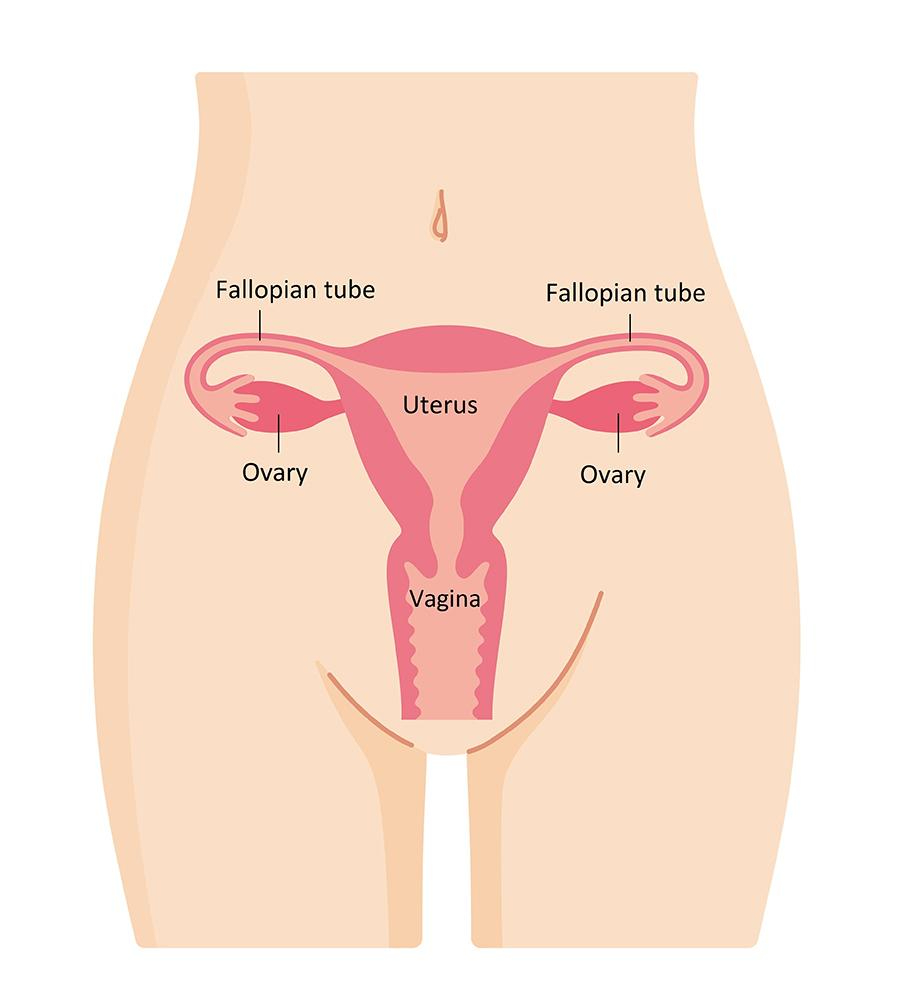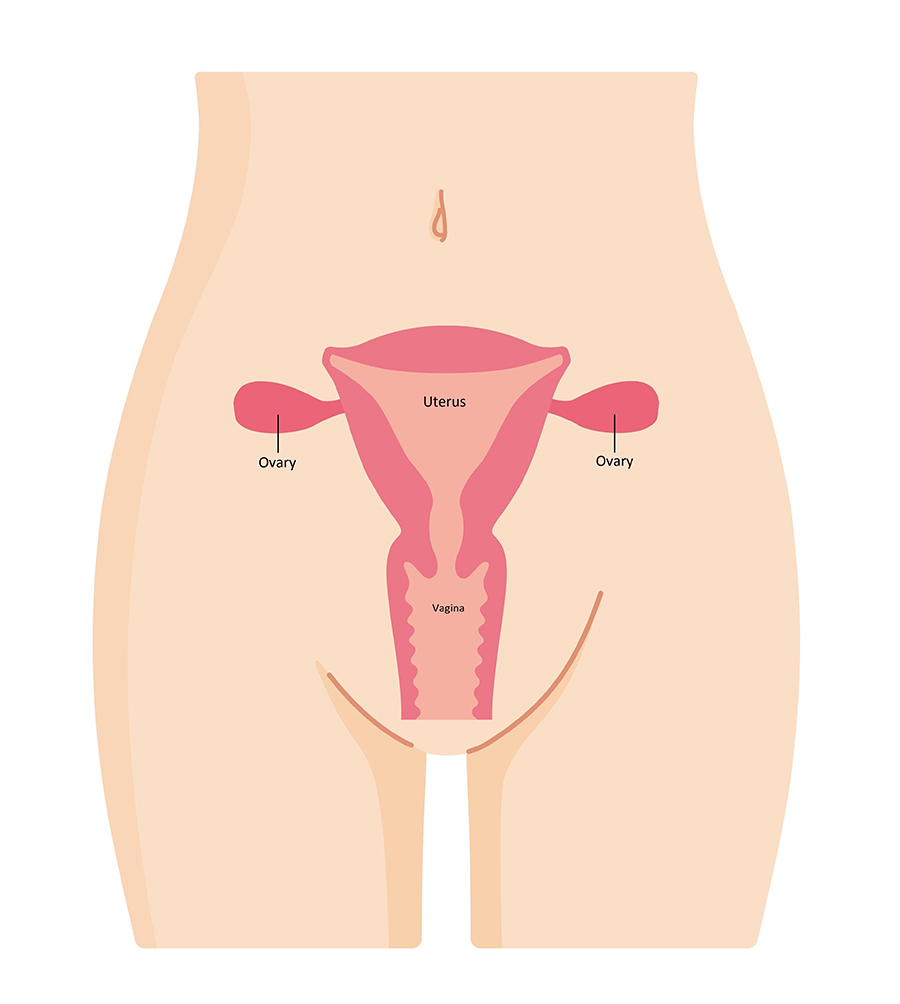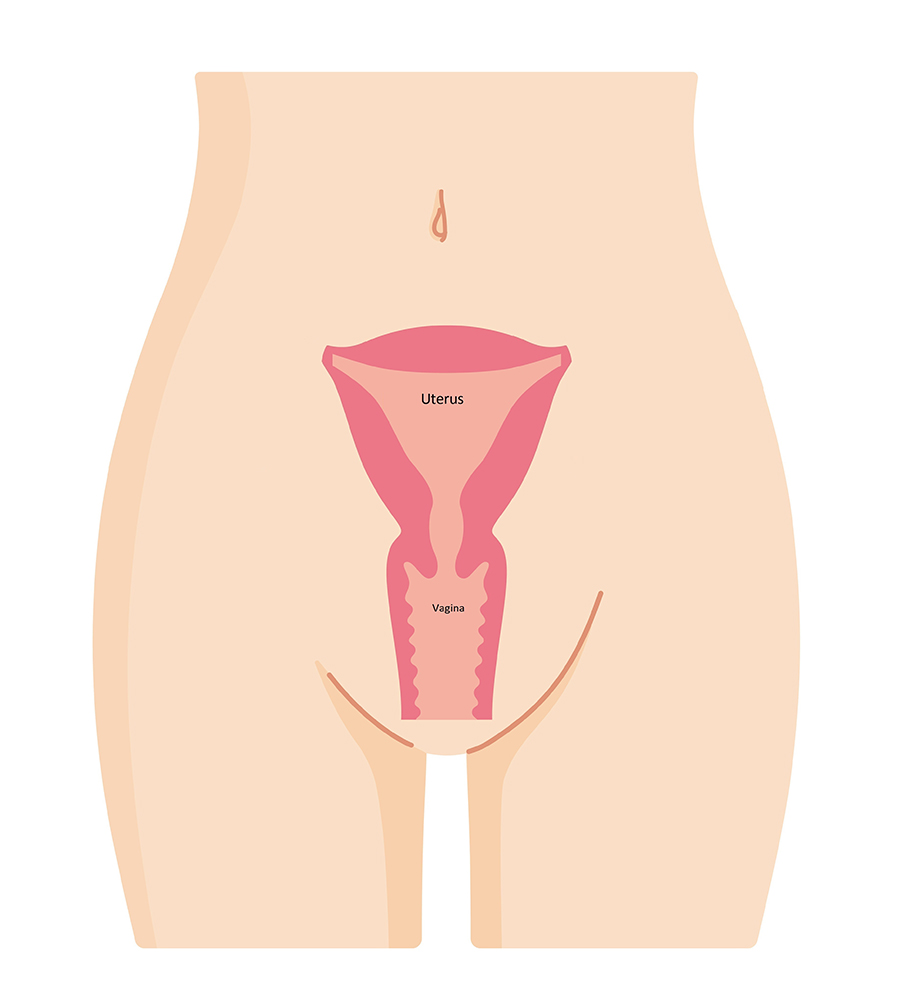In recent years, a lot of research on ovarian cancer has been done. This has shown that the cancer often originates in the fallopian tubes, rather than in the ovaries themselves. By removing the fallopian tubes at a younger age (between 25 and 40 years), we want to get ahead of the cancer developing. Whether the risk of ovarian cancer is really much lower with this surgery, we do not know for sure yet (see step 3). Therefore, we also remove the ovaries in a second surgery. This second surgery can be done at a later age (between 35 and 45 years), so that menopause starts later.
It is important to know that without fallopian tubes you will not be able to become pregnant naturally. Pregnancy may still be possible with in vitro fertilization (IVF), but this has many disadvantages.
The fallopian tubes do not produce hormones. It is therefore not a problem if the fallopian tubes are gone with regards to hormonal production. The ovaries can still produce hormones. Therefore, you will not go into menopause. Menopause starts after the second surgery (between the ages of 35 and 45) as this is when the ovaries are removed. This means that you enter the menopause 5 years later than you would with a surgery in which both fallopian tubes and ovaries are removed.
 Situatieon before surgery
Situatieon before surgery Situation after 1nd surgery
Situation after 1nd surgery Situation after 2nd surgery
Situation after 2nd surgery
Overview of the benefits and downsides
Benefits
- If you no longer wish to have children, and you have the fallopian tubes removed in advance, you are likely to have a lower risk of ovarian cancer.
- Menopause is delayed because the ovaries stay in your body longer and continue to make hormones.
Downsides
- You will have surgery twice and you will need time to recover twice.
- There is a chance of complications (for example, bleeding, infection, or damage to the bowel or urinary tract). The chance of this happening is small. Complications occur in about 2 out of 100 surgeries. We do not know whether more complications occur in the first surgery than in the second surgery. The effects of complications are usually temporary and not serious.
- Your doctor may advise against you having two surgeries for medical reasons.
- The costs of both operations are insured. How costs are handled depends on your country and healthcare insurance.
- Not sure: If only the fallopian tubes are removed, it is not certain that the risk of ovarian cancer is reduced. If you leave the ovaries in place longer than after the age of standard surgery (up to 40 years), you may still be at a greater risk off ovarian cancer.


